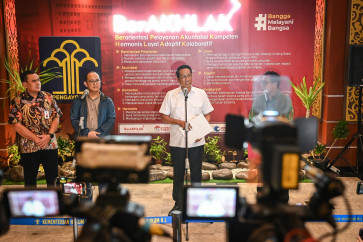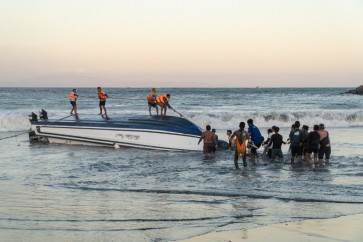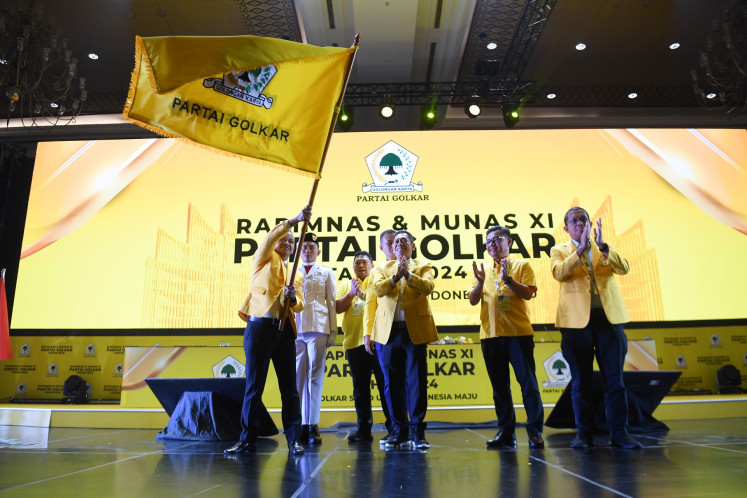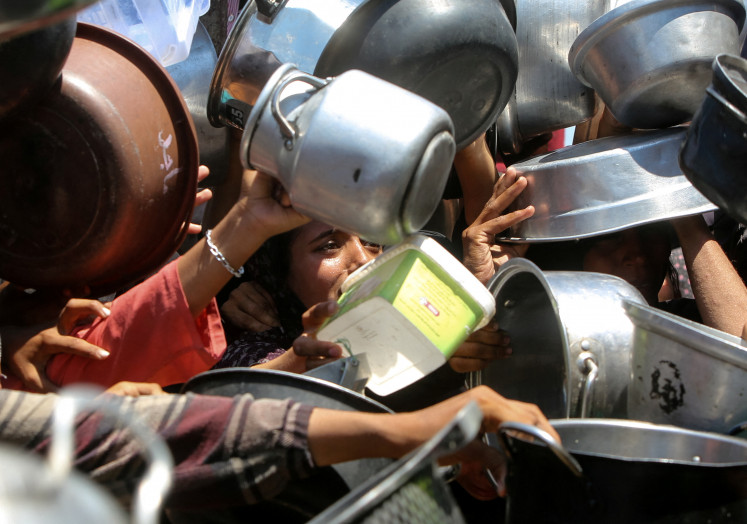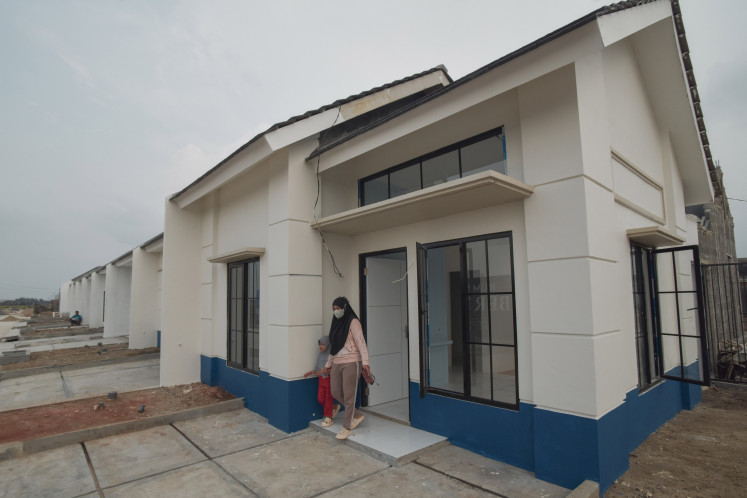Popular Reads
Top Results
Can't find what you're looking for?
View all search resultsPopular Reads
Top Results
Can't find what you're looking for?
View all search resultsCitilink-Sriwijaya deal to ‘broaden market’
A senior Garuda Indonesia official has said the takeover of Sriwijaya Air Group by the national flag carrier’s subsidiary Citilink Indonesia is aimed at broadening the airline’s market and strengthening the company’s business
Change text size
Gift Premium Articles
to Anyone
A
senior Garuda Indonesia official has said the takeover of Sriwijaya Air Group by the national flag carrier’s subsidiary Citilink Indonesia is aimed at broadening the airline’s market and strengthening the company’s business.
The takeover, which is being carried out under an operational cooperation agreement (KSO), is expected to help Sriwijaya Air Group improve its performance amid hard times.
Garuda Indonesia commercial director Pikri Ilham Kurniansyah said the KSO was to maintain the sustainability of the airline industry under a collaborative business ecosystem.
“We cannot forever bleed ourselves dry to stay in the industry. The future business ecosystem is the sharing economy. This is for the sake of the sustainability of this business, we do not want this business to collapse as well,” he said on Thursday.
Pikri said the KSO would not result in a change in the airlines’ brand. However, in the future, the two airlines would cooperate in various areas, including marketing. The KSO, Pikri said, would be a long-term collaboration.
“Today, Garuda Indonesia’s sales offices only sell Garuda Indonesia tickets. In the future, we will also sell Citilink and Sriwijaya Air tickets, as well as tickets for other airlines,” he said.
“This is a collaborative ecosystem that we are trying to build.”
In addition, he said, under the KSO, Garuda Indonesia Group could serve more passengers with more complete services and wider reach to different market segments.
Pikri said without collaboration, Garuda Indonesia Group would only grow organically and growth would be sluggish. However, with the KSO, the airline’s market share would grow faster and have more potential, he said.
“Garuda Indonesia Group and friends [including Sriwijaya Air Group] will complement each other. In the future, for premium class we have Garuda Indonesia, in medium class, we have Sriwijaya Air, for the premium low-cost carrier [LCC] we have Citilink, while for the LCC we have NAM Air,” he said.
According to the Indonesia National Air Carriers Association, Garuda Indonesia Group, comprising Garuda Indonesia and Citilink Indonesia, controlled 33 percent of the market in 2017. Meanwhile, Sriwijaya Air Group, comprising Sriwijaya Air and NAM Air, held 13 percent of the market.
Garuda Indonesia Group’s consolidation will take it closer to the dominant player in the industry, Lion Air Group, which controlled 51 percent of the market in 2017.
In an earlier statement, Garuda Indonesia president director Ari Askhara said it aimed at controlling 51 percent of the market after the takeover of Sriwijaya Air Group.
Bhina Artha Sekuritas analyst M. Nafan Aji Gusta Utama said the Citilink-Sriwijaya Air agreement signed on Nov. 14 was received positively by the stock market. After the deal, Garuda Indonesia Group share prices rose 26 percent in a day, peaking at Rp 252 on Nov. 15.
“This [the KSO] is considered strategic and there is hope that the two airlines will improve their service, especially in the LCC segment. We see that Garuda Indonesia Group has good ratings in service and safety, while Sriwijaya Air has a good record in punctuality,” said Nafan, adding that with the KSO the two groups could benefit each other and improve their service.
Indonesia Consumer Foundation deputy chairman Sudaryatmo views the KSO as a method for Sriwijaya Air Group to revive its fortunes amid hard times for the airline. The KSO is aimed at helping Sriwijaya Air Group in fulfilling its commitment to third parties, among them Garuda Indonesia Group.
“Hopefully the KSO will heal the financial and managerial problems of Sriwijaya Air Group. The KSO perhaps means that the airline is having a hard time because of the unhealthy aviation industry,” he said.
Sudaryatmo said the aviation industry in Indonesia was not healthy as it was dominated by an airline that had a market share of more than 50 percent, referring to Lion Air Group.



